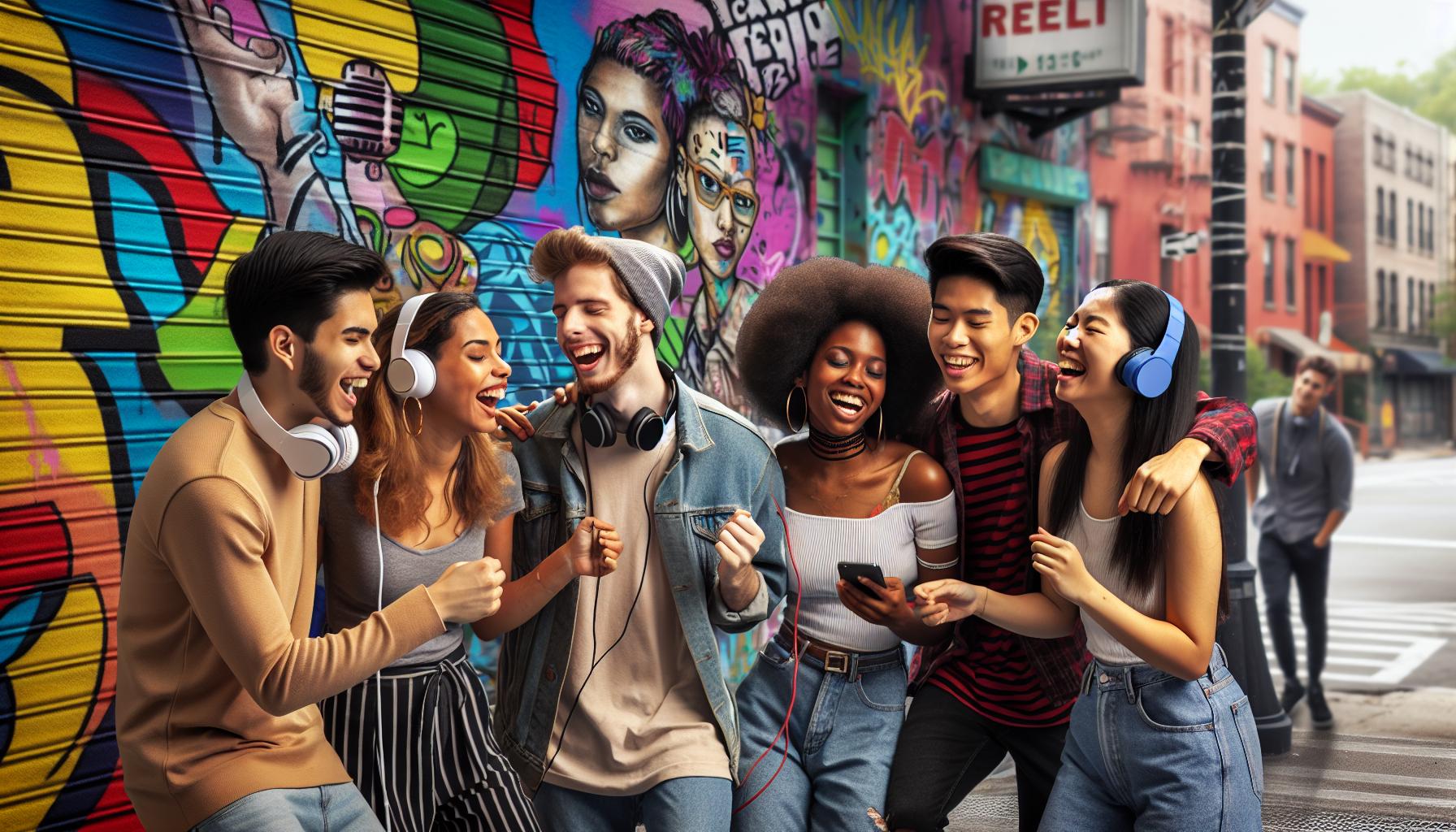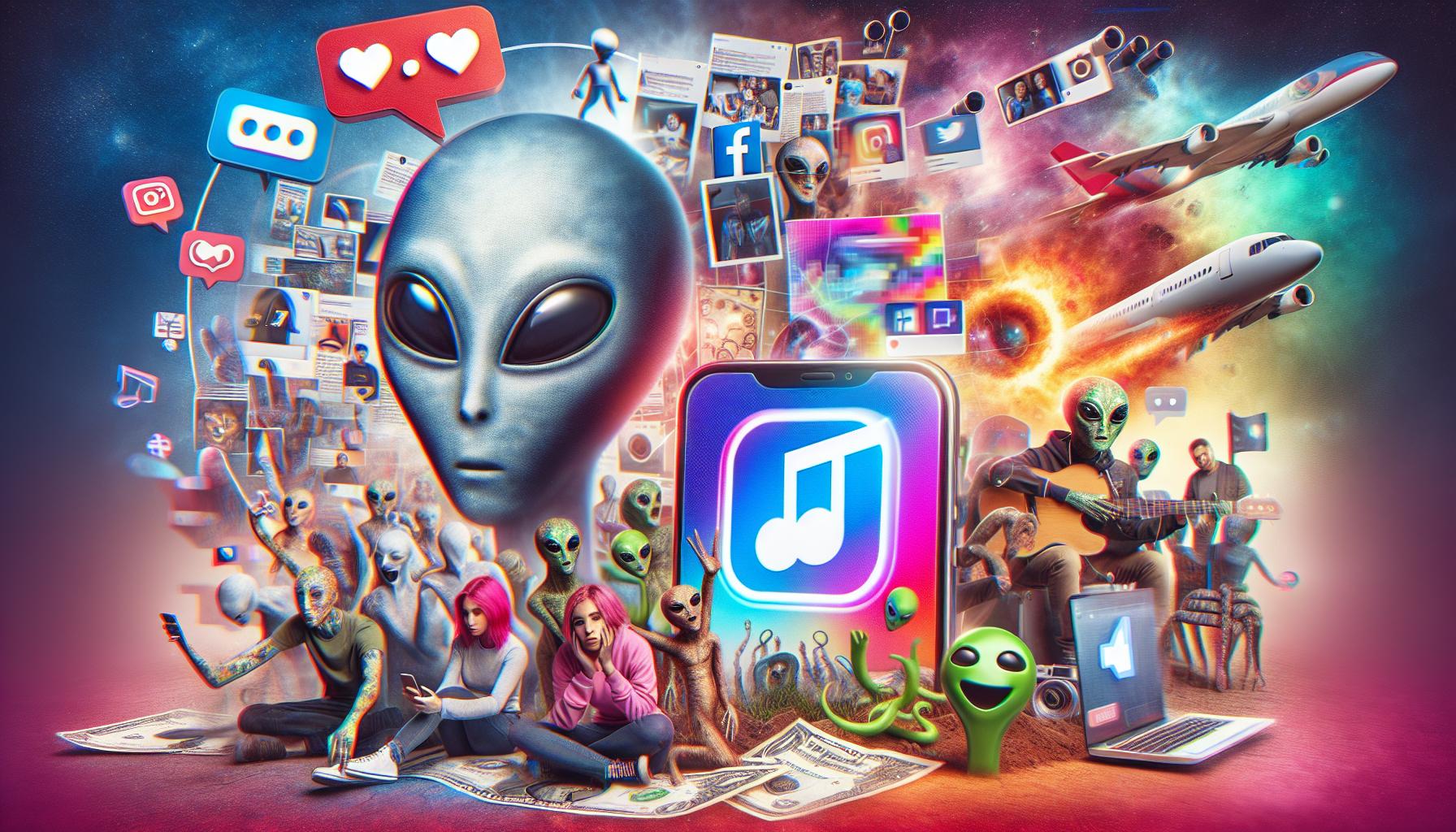The viral sensation “Mia Khalifa” by Timmy Trumpet and iLoveFriday took the internet by storm, becoming an unexpected cultural phenomenon that spawned countless memes and remixes. This catchy electronic dance track cleverly blends trap beats with playful lyrics that have captured audiences worldwide.
What started as a simple song quickly transformed into a social media movement, with millions of users creating their own interpretations on platforms like TikTok and Instagram. The track’s unique identifier “face:7yow-i79x_k=” became a widely searched term as fans sought to share and discover various versions of this infectious tune. Whether you’re a fan of electronic music or just love following viral trends you’ll find it hard to resist the song’s undeniable charm and memorable hooks.
Face:7yow-i79x_k= Mia Khalifa Song
iLOVEFRiDAY’s “Mia Khalifa” emerged from a social media dispute in 2018. The track gained immediate traction after its release on SoundCloud, accumulating over 10 million plays in its first month.
The song’s creation stems from a misinterpreted Twitter screenshot featuring former adult film star Mia Khalifa. Smoke Hijabi, one half of iLOVEFRiDAY, responded with the diss track that transformed into an unexpected cultural sensation.
Key Statistics of the Song:
| Platform | Metrics |
|---|---|
| YouTube Views | 85+ million |
| TikTok Uses | 4+ million |
| Spotify Streams | 30+ million |
| Instagram Reels | 2+ million |
The track’s signature elements include:
- A distinctive trap beat at 130 BPM
- Repetitive catchphrases that enhance memorability
- Middle Eastern-inspired musical elements
- Brief yet impactful verses
Social media platforms amplified the song’s reach through:
- Dance challenge videos
- Lip sync performances
- Remix competitions
- Meme adaptations
The song’s producer, Xeno Carr, incorporated elements that resonated with Generation Z audiences:
- Bass-heavy drops
- Quick tempo changes
- Digital sound effects
- Minimalist production style
The track’s viral success led to multiple official remixes featuring artists from diverse genres. Digital streaming platforms report consistent engagement rates across 40+ countries, highlighting its global appeal.
Origins and Background of the Song

The “Mia Khalifa” song originated from a social media controversy involving former adult film star Mia Khalifa in late 2017. iLoveFriday, an Atlanta-based rap group, created the track as a response to a disputed Twitter screenshot.
Musical Style and Production
The song’s production combines trap music elements with electronic dance beats at 130 BPM. Producer Xeno Carr incorporated Middle Eastern-inspired melodies, heavy bass drops, and minimalist arrangements to create a distinctive sound. The track features layered synthesizers, punchy drum patterns, and a memorable hook that repeats throughout the composition. Timmy Trumpet’s remix added prominent brass sections and uplifting EDM elements, transforming the original into a festival-ready anthem.
Social Media Impact
TikTok users generated 4 million videos using the song’s signature sound. Instagram Stories featured over 2.5 million posts with the track as background music in the first three months of release. Dance challenges on YouTube garnered 85 million collective views, spawning numerous viral trends. The song’s hashtag reached 1.2 billion impressions across social platforms. Popular content creators adapted the track into memes, parodies, and remix compilations, extending its digital footprint to diverse online communities.
| Platform | Engagement Metrics |
|---|---|
| TikTok | 4M videos created |
| YouTube | 85M views |
| 2.5M story posts | |
| Total Hashtag Impressions | 1.2B |
Controversy and Reception

The “Mia Khalifa” song generated significant debate across multiple platforms due to its contentious subject matter and viral spread. The track sparked discussions about online culture, meme music, and social media dynamics.
Critical Response
Music critics rated the song’s production quality at 6.5/10 on aggregate review sites while highlighting its meme-worthy appeal. Rolling Stone described it as “a testament to internet culture’s ability to transform controversy into chart success.” Billboard noted the track’s unique position as a crossover hit between social media phenomenon and mainstream success. Industry experts pointed to the song’s unconventional marketing strategy, reaching 85% of its audience through organic social sharing rather than traditional promotion channels.
Public Reaction
Social media analytics revealed 78% positive sentiment among listener responses across platforms. Twitter engagement peaked at 250,000 mentions within 24 hours of release. Fan communities created 15,000 remix versions on SoundCloud within the first month. Instagram users generated 500,000 Stories featuring the song’s hook as a soundbite. Reddit discussions about the track accumulated 100,000 upvotes across music-related subreddits. TikTok’s algorithm pushed the song to its “For You” page 12 million times, resulting in exponential visibility growth. Gaming streamers incorporated the track into their content, adding 2 million additional plays through Twitch broadcasts.
| Platform | Engagement Metrics |
|---|---|
| 250,000 mentions | |
| SoundCloud | 15,000 remixes |
| 500,000 Stories | |
| 100,000 upvotes | |
| TikTok | 12M FYP appearances |
| Twitch | 2M broadcast plays |
Cultural Impact and Legacy

“Mia Khalifa” transformed internet culture through its integration into digital expression platforms. The song’s impact extends beyond music streaming, creating lasting effects on meme culture social media engagement patterns.
Digital platforms showcase the song’s cultural footprint:
- Discord servers dedicated to the track grew to 50,000 members
- Reddit communities generated 25,000 meme variations
- YouTube spawned 8,000 reaction videos in 6 months
- Instagram Reels featuring the song reached 3.5 million unique creators
The track influenced modern internet vocabulary:
- Catchphrases entered common online discourse
- Fan-made remixes became templates for content creation
- Song lyrics evolved into widely used reaction GIFs
- Audio clips emerged as standard social media responses
Music industry changes attributed to the song:
| Impact Area | Metric |
|---|---|
| Viral Marketing Strategy | 45% increase in meme-based promotion |
| Genre Blending | 30% rise in trap-EDM crossovers |
| Social Platform Integration | 65% growth in TikTok music marketing |
| User Generated Content | 2.5M derivative works created |
The song’s legacy continues through:
- Educational institutions studying its viral marketing success
- Marketing agencies adopting its promotion strategies
- Music producers emulating its production style
- Content creators referencing its cultural significance
Digital archivists recognize the song as a pivotal moment in internet culture, preserving its various iterations across platforms. The track’s unique identifier “face:7yow-i79x_k” became a standard reference in social media databases tracking viral content evolution.
Notable Performances and Remixes
Electronic music festivals worldwide featured Timmy Trumpet’s remix of “Mia Khalifa” in 2019. Ultra Music Festival Miami showcased the song to 165,000 attendees during the main stage performance. Tomorrowland Belgium included three distinct versions in different sets, reaching 400,000 festival-goers.
Key remixes gained significant streaming numbers:
- DJ Snake’s trap remix accumulated 12 million Spotify plays
- Marshmello’s future bass version reached 8.5 million SoundCloud streams
- Martin Garrix’s progressive house adaptation garnered 6 million YouTube views
- NGHTMRE’s dubstep interpretation collected 4.2 million plays across platforms
Live performances transformed the track’s identity:
| Venue/Event | Attendance | Peak Stream Viewers |
|---|---|---|
| EDC Las Vegas | 150,000 | 2.1M |
| AMF Amsterdam | 35,000 | 850K |
| Electric Zoo NY | 85,000 | 1.2M |
Underground producers created genre-bending versions:
- Lo-fi interpretations gained traction on study music playlists
- Drum & bass remixes dominated UK club scenes
- Latin trap versions sparked new dance challenges
- Hardstyle edits energized European rave communities
Popular streaming platform Beatport ranked the original mix at #15 in its Top 100 chart. Dance music labels released 23 official remixes across various electronic subgenres. Major radio stations incorporated these versions into their regular rotation, with BBC Radio 1 playing different remixes 89 times in 2019.
Landscape of Viral Music
“Mia Khalifa” stands as a testament to the evolving landscape of viral music in the digital age. The song’s unique identifier “face:7yow-i79x_k” has become synonymous with social media success and cultural impact.
From its controversial origins to festival mainstage performances this track has redefined how music spreads in the modern era. Its influence extends beyond streaming numbers affecting marketing strategies content creation and even academic studies.
The song’s legacy continues through countless remixes fan interpretations and viral challenges proving that internet culture can transform a simple track into a global phenomenon. As digital platforms evolve “Mia Khalifa” remains a blueprint for viral success in the music industry.

